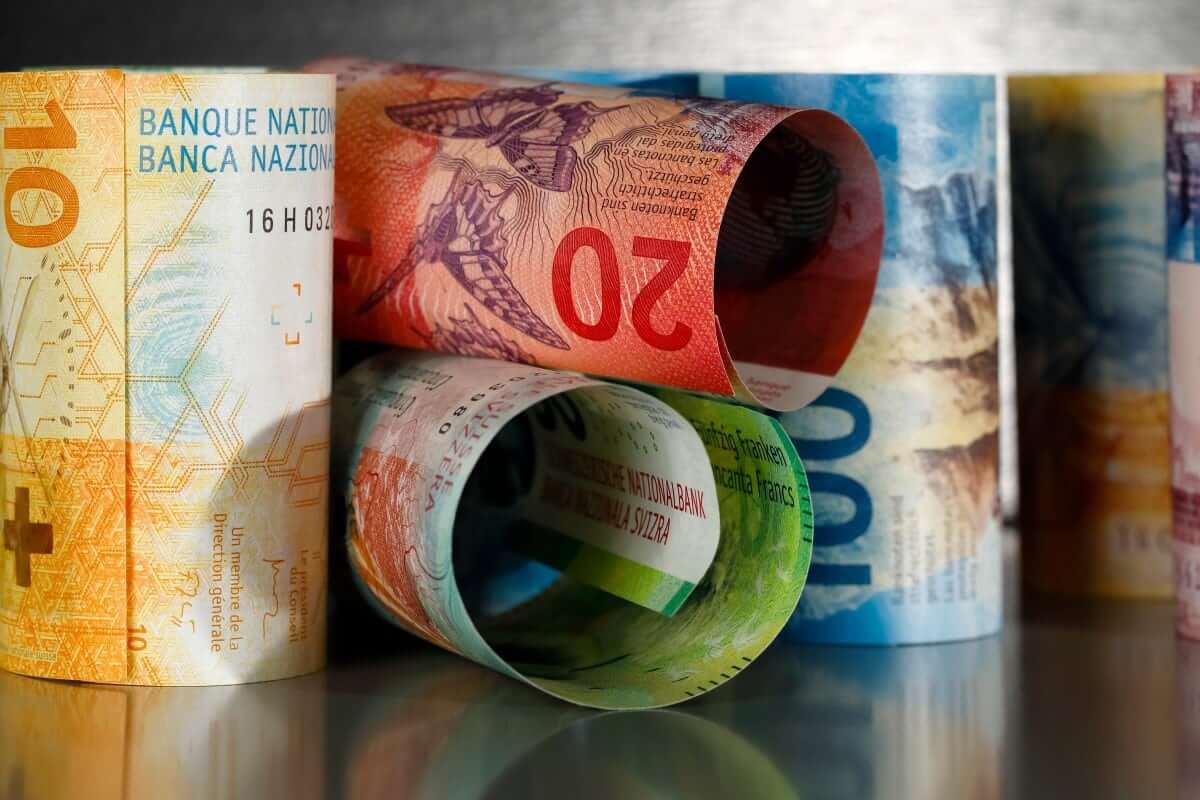
The Swiss franc soared on Thursday. What caused its rally?
The Swiss franc surged forward today after its central bank hiked its interest rate by 50 basis points. Consequently, two-year bond yields also jumped higher. The Swiss National Bank seems confident that raising rates won’t seriously impact the country’s economic growth. Some analysts pointed out that maintaining rates high for an extended period might well push Switzerland’s economy into recession. That is true for all countries. While experts welcomed monetary policy tightening when the global central banks first started applying it, they now worry that such policy might eventually cause some drawbacks.
Still, the Swiss franc rallied due to the news on Thursday, gaining substantially across the board. The U.S. dollar shaved off 0.5% at 0.9121 francs today. The euro also plummeted by 0.2% to 0.9939 francs.
The Swiss government aided UBS in taking over its rival Credit Suisse on Sunday. UBS purchased the shares for only $3 billion. However, the authorities promised to back it up, agreeing to put aside $260 billion if needed. Credit Suisse was one of the banks facing difficulties, while two others collapsed in the United States. UBS managed to mitigate the damage by acquiring the former, though.
Investors didn’t expect any major rate hikes from central banks this week due to the recent turbulence caused by problems in the banking sector. However, the Swiss central bank stated that it needed to increase rates to hinder soaring inflation. Two-year Swiss government bond yields jumped to a one-week peak after the bank’s decision, hitting 1.173%.
How are the EM currencies faring?
Emerging Asian currencies traded in the green today. They soared after the U.S. Federal Reserve made relatively dovish comments. The Philippine peso surged forward during this session. The country’s central bank increased interest rates by 25 basis points, as traders expected, supporting the peso. The bank also stated that inflation would likely slow over this year. In February, annual inflation declined slightly to 8.6%. The policymakers expect it to drop to 6.0% in 2023.
Nicholas Mapa, the senior economist at ING, pointed out that Governor Medalla already hinted about his next policy decision being data-dependent. In addition, he also stated that outside developments, like Federal Reserve’s moves, would also influence his decision but wouldn’t be key factors.
On Thursday, the Singapore dollar rallied by 0.4%. It remained on track for its sixth consecutive session of gains. However, the local benchmark dropped by 0.1%. The South Korean won gained the most today, though. It skyrocketed by more than 2%. At the same time, the Malaysian ringgit added 0.9%, and the Thai baht climbed up by 0.3%.




